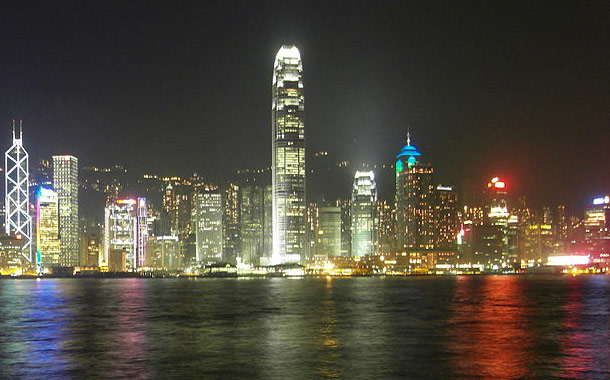<![CDATA[The current protests on the streets of Hong Kong are continuing the complicated history of the small region in China. Throughout its existence, the diverse population of Hong Kong has been confronting issues of identity and freedom, democracy and imperialism. At the moment, people are taking to the streets in Hong Kong to call for political reform. Ultimately, they are demanding the right to elect their next head of government free of Chinese intervention. Presently, candidates for the 2017 election would have to be vetted by Chinese authorities - something the protestors feel undermines Hong Kong's freedom. Since the Hong Kong handover in 1997, the country has officially been a Special Administrative Region of the People's Republic of China. This has allowed it to enjoy something of a privileged position when compared to the rest of China. The situation is often summarised as "One Country, Two Systems". Hong Kong is part of China, but has greater freedom over its government and economy. Hong Kong was first absorbed into Imperial China in 50 BC. It quickly became an important economic centre due to the large port facilitating international trade. It was also home to significant salt production and pearl hunting industries. It remained part of China until the nineteenth century, when the rest of the world started to covet this important trade centre and military outpost. China entered into trade with Europe during the sixteenth century, but an increasing imbalance became apparent. The largely self sufficient Chinese had little need for European goods and therefore only accepted trade in silver. From 1817, Britain started exporting opium to China, realising there was a market for the narcotic. War broke out between Britain and China in 1839 when the Chinese government attempted to ban the import of Opium. At the end of this first Opium War, in 1842, China surrendered Hong Kong to the British Empire. The British occupation of Hong Kong saw the population of the island swell dramatically. At various points Chinese immigrants would flee there to escape upheaval and economic turmoil on the mainland. The greatest influxes occurred in 1937, as people fled from the advancing Japanese Army, and again in 1946, as they fled the Chinese Civil War. Aside from a period of Japanese occupation between 1941 and 1945, Hong Kong would remain under British rule until 1997. In the 1960's, Hong Kong went through a major economic boom. A huge textile industry, combined with a multitude of construction works, saw employment figures increase drastically. This sudden surge of industrialisation came at a cost, as working hours drastically increased, while hourly wages failed to match the increased cost of living. Hong Kong's growing prosperity therefore coincided with rising social unrest and labour disputes. The Cultural Revolution in China proved the catalyst that turned the disputes of the early sixties into full scale public protests. As China embarked on the path to Communism, the differences between the British Colony and China could not have been more marked. Hong Kong's labour force became desperate to maintain the Chinese traditions and family values that were being eroded in the economic boom, while also noticing the celebration of labour that was developing in Communist China. Although the Communist Party in China helped fuel the flames of 1967, the severe riots revealed the growing disparity between the mostly ethnically Chinese working population of Hong Kong, and the international business that was dominating its economy. The current protests are not the first conflicts with the Chinese government to have occurred in Hong Kong since the handover in 1997. Early in the twentieth century, a mass of demonstrations in Hong Kong succeeded in preventing the implementation of 'Article 23', a security measure similar to the US Patriot Act. There have also been annual commemorations of the Tiananmen Square massacre, something which is strictly forbidden elsewhere in the People's Republic of China. Hong Kong's complex history is impossible for outsiders to truly understand and empathise with. The region has become a symbol of great wealth and trade, with a diverse and cosmopolitan identity. The recent protests seem to show however, that the struggle to confirm Hong Kong's political identity is yet to be resolved. ]]>
Hong Kong – a History Between Democracy and Imperialism
